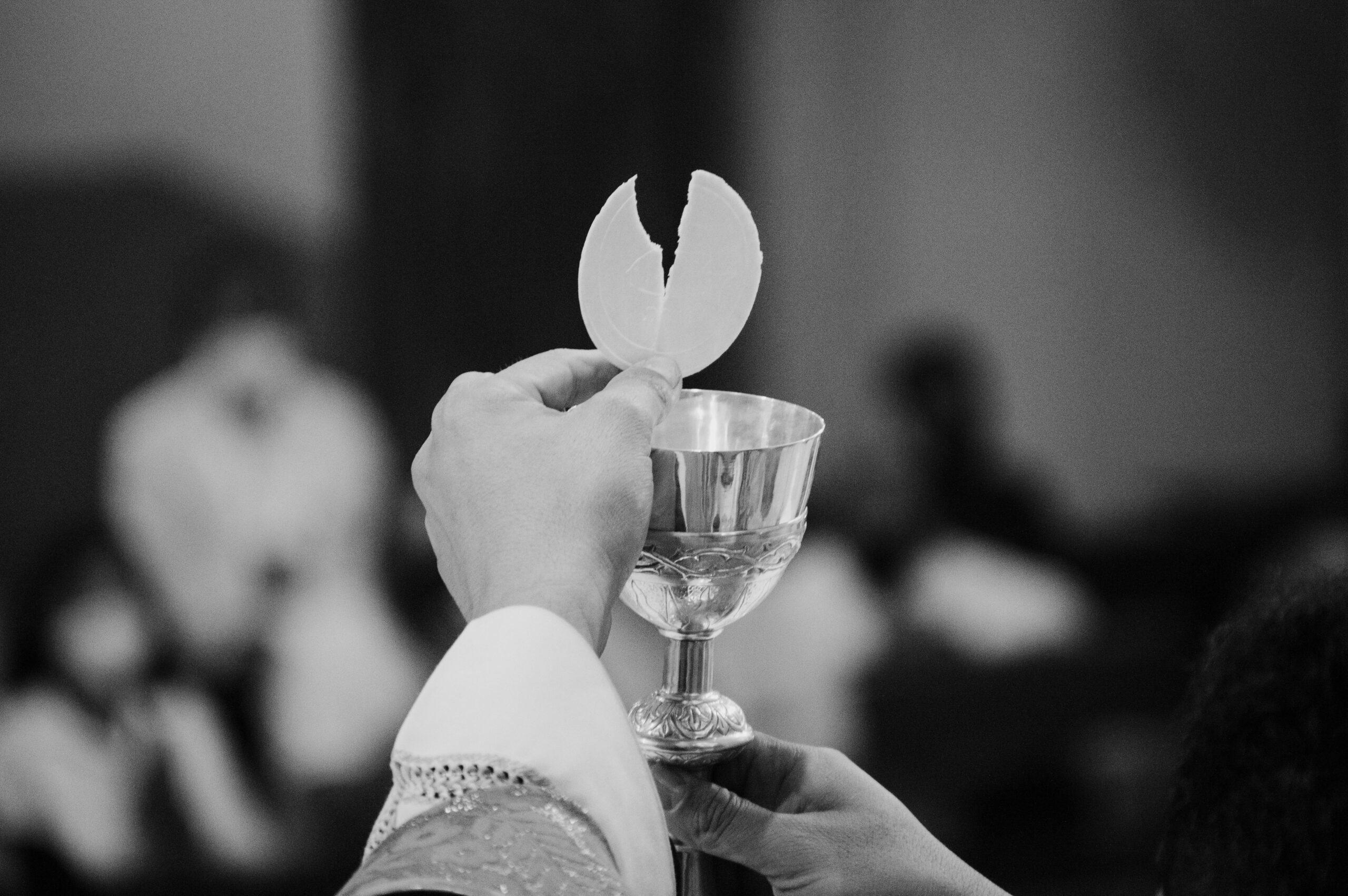I’m a liturgist with an English literature degree, so I spend an inordinate amount of time thinking about the words of the Mass. I have controversial opinions on the opening prayers at Mass, and I love a good hymn adaptation of a Scripture passage, but one of my favorite phrases from the Mass is one we recite together just before receiving Communion: “Lord, I am not worthy that you should enter under my roof, but only say the word and my soul shall be healed.”
As a queer person, it might make sense if I bristled at these words. Enough people have implied or outright told me that I am not worthy to be present at the Eucharist. Responding to their critiques, I could follow and believe every word of the Catechism to the letter, and I still wouldn’t measure up for them. My mere existence, including the God-given gift of my identity, is disqualifying in their eyes. To me, it feels like they’re saying that I cannot possibly know the faith, that I am unable to be a good pastoral minister, nor can I live as a faithful Catholic.
Over the years, I internalized those words. Subconsciously, I thought that if I could be a perfect liturgist and never contradict a word of the Magisterium, then somehow homophobic Christians would begrudgingly acknowledge that I am a worthy minister in God’s church, regardless of my sexual orientation.
All I can possibly be is myself, the self God created me to be.
Well, that didn’t work. I’m still rejected by plenty of the people of God for one reason or another, before I can even try to prove my Catholic credentials. I’m a lay woman and they want a priest, or I’m younger than they are and they won’t or can’t take me seriously. Or they catch the rainbow flag on my jacket, and never even approach me. But no minister, no person, can be everything to everyone. I am not God. All I can possibly be is myself, the self God created me to be.
Placing my own self-understanding in God’s hands alone is ultimately more fruitful, but it’s hard to not place my self-worth in what others think of me. When I train liturgical ministers, I often say, “It’s God’s house, not mine,” gesturing at the church. I want to stress what this ancient, sacred prayer before Communion reminds us: it’s not up to any of us to judge the faithfulness of the members of the congregation, nor theirs to judge us.
My theology, including my understanding of myself before God, begins from belovedness. God delights in God’s own creation and loves us more than we can imagine. Nothing can separate us from God’s love. Yet, there’s a both/and reality of both rooting myself in the confidence of being a beloved child of God and recognizing that I’m constantly falling short of the example set by Jesus that I am called to follow.
This prayer—“I am not worthy that you should enter under my roof”—originates in the Gospel of Matthew, where a Roman centurion requests that Jesus heal his servant:
When [Jesus] entered Capernaum, a centurion came to him, appealing to him and saying, “Lord, my servant is lying at home paralyzed, in terrible distress.” And he said to him, “I will come and cure him.” The centurion answered, “Lord, I am not worthy to have you come under my roof; but only speak the word, and my servant will be healed.”
The centurion makes this statement in response to Jesus’ generosity. Jesus has already assured the man that he would save and heal his servant, to which the centurion responds with a remarkable humility. While the centurion enjoys earthly power and authority, he acknowledges that his power pales in comparison to God’s.
I need that example in my life.
The centurion’s prayer reminds me to check my pride. I don’t like being less than perfect or admitting I messed up. Plus, there are countless ways I don’t measure up to the ideals of the Christian life. For example, I don’t live up to John the Baptist’s standard that tells me if I have two coats, one rightfully belongs to the poor. Also, my prayer life could use some work; I certainly do not give enough time out of my day. I’m inclined to be judgmental towards folks in my faith community instead of giving them the benefit of the doubt.
The centurion makes this statement in response to Jesus’ generosity. I need that example in my life.
When I’m tempted to get angry about hypocrisy from my fellow Christians, or feel superior to those who are homophobic, the centurion’s prayer reminds me to take a deep breath and reflect on the reality that I am not God. It reminds me to let go of my preoccupation with casting judgement, because I have enough to do without also trying to do God’s job. This prayer reminds me that I should emulate the God who gives generously without tallying my own failings, the God who forgives “what I’ve done and what I’ve failed to do.”
It is at a word from God that my soul shall be healed. It is at a word from God that we are somehow permitted this joy of breaking bread together. And it is because of God’s word that I am confident that I am welcome there, at the table of God.




